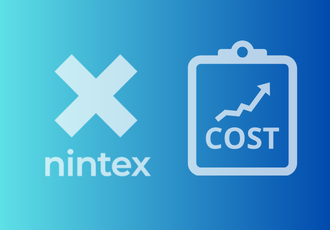*This blog is based on 'Adventures in Low-Code' by John R. Rymer, VP & Principle Analyst Forrester Research Inc.
Our friend John R. Rymer, VP and Principle Analyst at Forrester Research Inc., has recently launched a new short video blog series, 'Adventures in Low-Code', discussing all things process automation and low-code development platforms.
To give you some perspective, John leads Forrester's AD&D research on cloud platforms, as well as low-code development platforms. It's safe to say he knows a thing or two on these topics, having amassed more than 20 years experience as a leading expert in the fields of enterprise application development practices, technologies and platforms.
In it's opening editions, 'Why Everyone Needs To Know About Low-Code' and 'Busting The Two Myths Of Low-Code Platforms', John talks us through everything that you need to know about low-code development platforms and addressing the negativity around them.
How Can Low-Code Help?
I'm sure at some point in your organization there have been times when you simply cannot access all the various software that your job requires. If this example is all too familiar, then you will have seen how developers struggle to keep up with the daily demands being placed on them, because the business people working within the organization aren't developers.
So how do we fix this?
There are two reasons why you need to know about low-code platforms according to John. Both of which are relevant to anyone working within an organization, even if you don't work in software or IT.
1) An Alternative To Programming
Low-code development platforms can be adopted by your developers as an alternative to programming, with the aid of visual tools. This is a much faster alternative, as teams can deliver software up to ten times quicker and in some cases even higher in comparison to coded solutions.
2) Low Implementation Costs
Your developers and business people can deliver new ideas in software on low-code platforms at a very low cost, with minimal training time required to get up and running.
However, like any process, the greater the complexity the greater the time period. So, you may have some which may only take a day to implement, whereas larger ideas for example may take up to a month to implement. Despite this it's still a quick turnaround.
Essentially, John suggests that "low code development platforms can help you catch up and possibly even lead the fast changing digital economy!"
Credit:'Why Everyone Needs To Know About Low-Code' by John Rymer, Vice President and Principal Analyst, Forrester Research Inc.
Abolishing The Myths of Low-Code
So, we've already talked about how low-code can help Business Managers and Heads of Departments, but John claims there are also a number of myths that surround low-code development platforms which need to be corrected.
Common myths about low-code include:
1) Are There Limits To What I Can Deliver?
In short no, as developers have already delivered a wide variety of use cases on what John refers to as "general purpose low code platforms". These products are specially designed to cope with complex user interfaces, business logic and manage data.
To emphasis the scale of these platforms, John notes that Forrester recently encountered a low-code application that can route 1.5 million orders per day to multiple different manufacturing plants. He adds that architectural planning for such a high scale and complex project would be required even with the use of a low-code platform, though it proves that it is possible to create.
2) Does It Limit My Flexibility?
No because low-code platforms feature several open source frameworks, which often include functionality that is delivered through API's into business applications.
Low-code vendors provide various deployment options for users, whilst regularly adding new use case support all the time, the most recent of these being in machine learning, AI and IOT.
At the end of the day there's no problem with being skeptical of any piece of technology. All that matters is that you examine all the evidence in order to help you choose the platform that meets your requirements.
Credit: 'Busting The Two Myths Of Low-Code Platforms' by John Rymer, Vice President and Principal Analyst, Forrester Research Inc.
Find Out More
Check out John's videos on 'Adventures in Low-Code' or why not get in contact with a digital transformation specialist at FlowForma. We will be happy to answer all your process automation questions and showcase how you too can benefit from digitizing your internal business processes.
.jpg) By
By 





